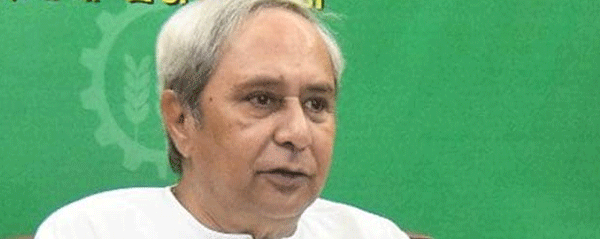Bhubaneswar: With outbreak of cholera currently gripping Odisha, prompting strong condemnation came from the Leader of the Opposition, Naveen Patnaik. He has voiced profound concern over the deteriorating public health situation, describing it as a life-threatening crisis that has disrupted daily life across several districts.
Shri Patnaik’s recent statement on X (formerly Twitter) highlighted the severe impact of cholera in the districts of Jajpur, Kendrapara, Bhadrak, Puri, Cuttack, and Keonjhar, noting its alarming spread to other areas. He expressed deep sorrow over the loss of 14 lives to the disease so far, extending his condolences to the bereaved families.
Recent reports indicate that the death toll, particularly in Jajpur district, is indeed rising. While official figures on Saturday, June 14, 2025, confirmed at least 5 deaths in Jajpur, with over 500 hospitalizations, some sources suggest the actual death toll could be as high as 11. The detection of Vibrio cholerae in stool samples has confirmed the presence of the cholera-causing bacteria.
In response to the outbreak, the Odisha government has taken several steps. The Jajpur district administration, for instance, has cancelled Raja festival holidays from June 14 to 16, ensuring all offices remain open to manage the crisis. Community feasts during the festival have also been banned to curb further spread.
Chief Secretary Manoj Ahuja has reviewed the situation and directed neighboring districts to remain vigilant against waterborne diseases, emphasizing intensive sanitation work and water quality surveillance. A 14-member central team comprising experts from ICMR, NCDC, WHO, and FSSAI has also been dispatched to Odisha to assess and assist in containment and treatment measures.
Despite these actions, Naveen Patnaik has sharply criticized the state government’s handling of the crisis, labeling its approach as “light-handed,” “shocking,” and “disturbing.” He has called for immediate and strong measures to prevent the further spread of cholera, as well as malaria, to protect the lives of the people. This criticism underscores a perceived inadequacy in the government’s response by the opposition, especially given the severity and spread of the disease.
While cholera outbreaks were historically more prevalent in tribal-dominated districts of Odisha, this year has seen coastal regions being significantly affected. The current situation highlights the persistent challenge of waterborne diseases in the state, particularly during the monsoon season. Authorities suspect contaminated drinking water and high humidity as primary factors contributing to the rapid spread.
The unfolding cholera crisis in Odisha demands a robust and coordinated public health response. The opposition’s call for stronger action reflects the urgency of the situation and the need for comprehensive measures to contain the outbreak, provide adequate treatment, and ensure safe drinking water for all affected communities.


